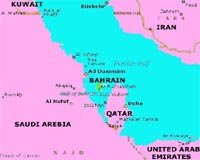 |
Dharamshala, India (AFP) March 20, 2011 Thousands of Tibetans worldwide vote Sunday for a new leader who hopes eventually to become the new face of the struggle for freedom in China, a cause embodied for decades by the Dalai Lama. The famous and celebrated monk, now 75, announced 10 days ago that he wanted to retire as political head of his exiled government and hand power to an elected leader who could continue the fight after his death. Amid great anxiety about the change -- the Dalai Lama however remains the more important spiritual head -- the 85,000-strong exiled Tibetan electorate will choose a new prime minister, known as the Kalon Tripa. The front-runner is a 43-year-old Harvard scholar and international law expert, Lobsang Sangay, who was born in a tea-growing area of northeast India and has never visited his homeland. "Elections are always important, but this time it coincides with the transition," the present prime minister Samdhong Rinpoche, an elderly monk elected in 2001, told AFP last week. "The new incumbent will have much more responsibility." The Dalai Lama's role as head of the government in exile is mostly ceremonial, but under his plans he would no longer sign resolutions, swear in the cabinet or attend parliament. The exact details of the transfer of power are yet to be worked out -- the parliament-in-exile still hopes to block the change -- but the Dalai Lama is adamant that the movement must be fully democratic to prepare for the future. "Rule by spiritual leaders or by kings, these are now out of date," he told AFP last week during an interview in his home in exile in the foothills of the Indian Himalayas. At present, the Nobel laureate is both the spiritual leader of Tibet and the political head of the government-in-exile, which he founded after fleeing his homeland in 1959 amid a rebellion against Chinese rule. The Dalai Lama institution has existed largely unchanged for 400 years. Sangay is the clear favourite in Sunday's contest between three secular candidates, having triumphed in a first round of the election last year with nearly 50 percent of the votes. "People see in me someone who is rooted in tradition but is also modern," he told AFP last Friday. Final results will be known sometime at the end of April once the votes are collated from polling stations in 13 different countries where Tibetan exiles are found. Preliminary figures are expected to emerge in the next few weeks. The move by the Dalai Lama to relinquish power is seen by observers as a risky but necessary step to prepare for a future without his charismatic leadership, which has kept the cause alive for the last 50 years. It is unclear, however, whether the new leader will have the power or influence to advance the cause, which under the Dalai Lama's policy seeks "meaningful autonomy" for Tibetans in China and not independence. Despite 50 years of lobbying, the Dalai Lama himself has little to show for his efforts. Beijing continues to brand him a "splittist" and subjects him to virulent attacks in public. An uprising by Tibetans in 2008 was brutally suppressed. The new prime minister, unlike the Dalai Lama, will have difficulty enlisting Western support for the Tibetan cause. The government-in-exile is not recognised by any country and US President Barack Obama, for example, would be unlikely to risk China's wrath by meeting whoever wins on Sunday. The victor's legitimacy might also be in question among Tibetans in Tibet, who will not take part in the election. Their loyalty remains with the Dalai Lama, who must convince them to accept his transfer of power. Sangay faces competition from two older candidates, Tenzin Tethong and Tashi Wangdi, who both have a long track record in government in the Tibetan adminstration in Dharamshala. The election will face severe difficulties in Nepal, where 20,000 of the estimated 150,000 exiled Tibetans live. Under Chinese pressure, authorities in Kathmandu are expected to stop what they see as an unlawful vote.
Share This Article With Planet Earth
Related Links Democracy in the 21st century at TerraDaily.com
 Iraqis rally for third day of Bahrain protests
Iraqis rally for third day of Bahrain protestsBasra, Iraq (AFP) March 19, 2011 Thousands of protesters in southern Iraq chanted slogans and carried effigies of Gulf rulers on Saturday in a third day of rallies supporting Shiite-led pro-democracy protests in Bahrain. About 7,000 protesters, many of them women, marched in the streets of the southern city of Basra to express their anger at a violent crackdown on the protesters by Bahrain's Sunni monarchy. "Gulf rulers ... read more |
|
| The content herein, unless otherwise known to be public domain, are Copyright 1995-2010 - SpaceDaily. AFP and UPI Wire Stories are copyright Agence France-Presse and United Press International. ESA Portal Reports are copyright European Space Agency. All NASA sourced material is public domain. Additional copyrights may apply in whole or part to other bona fide parties. Advertising does not imply endorsement,agreement or approval of any opinions, statements or information provided by SpaceDaily on any Web page published or hosted by SpaceDaily. Privacy Statement |